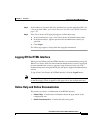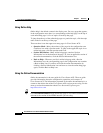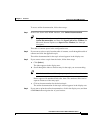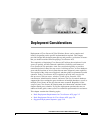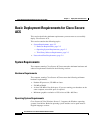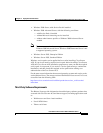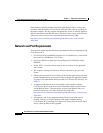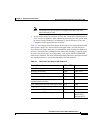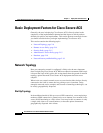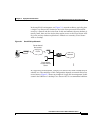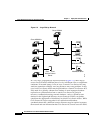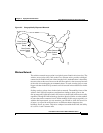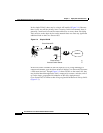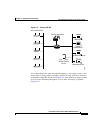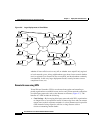
2-5
User Guide for Cisco Secure ACS for Windows Server
78-16592-01
Chapter 2 Deployment Considerations
Basic Deployment Requirements for Cisco Secure ACS
Note We tested Cisco Secure ACS on computers that have only one
network interface card.
• If you want to have Cisco Secure ACS use the “Grant Dial-in Permission to
User” feature in Windows when authorizing network users, this option must
be selected in the Windows User Manager or Active Directory Users and
Computers for the applicable user accounts.
Table 2-1 lists the ports that Cisco Secure ACS listens to for communications with
AAA clients, other Cisco Secure ACSes and applications, and web browsers.
Cisco Secure ACS uses other ports to communicate with external user databases;
however, it initiates those communications rather than listening to specific ports.
In some cases, these ports are configurable, such as with LDAP and RADIUS
token server databases. For more information about ports that a particular external
user database listens to, see the documentation for that database.
Table 2-1 Ports that Cisco Secure ACS Listens To
Feature/Protocol UDP or TCP? Ports
RADIUS authentication and authorization UDP 1645, 1812
RADIUS accounting UDP 1646, 1813
TACACS+ TCP 49
CiscoSecure Database Replication TCP 2000
RDBMS Synchronization with
synchronization partners
TCP 2000
User-Changeable Password web application TCP 2000
Logging TCP 2001
Administrative HTTP port for new sessions TCP 2002
Administrative HTTP port range TCP Configurable;
default 1024
through 65535



